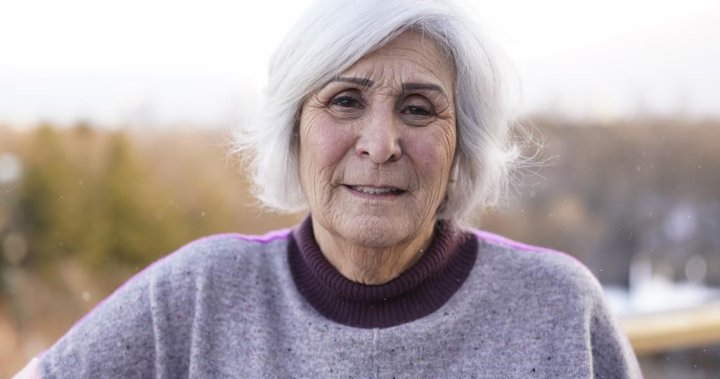Almost 30 years ago, Gail Bocknek turned on the evening news and watched dumbfounded as a man who had worked for her family for decades was identified as a Nazi war criminal.
Bocknek, the daughter of European Jews who had many extended family members die in the Holocaust, felt sick.
“I was just glad that my parents didn’t live to see this,” Bocknek said in a recent interview.
The stomach-churning memories of that day resurfaced for Bocknek last fall when Canadian parliamentarians of all stripes unknowingly applauded a man who had fought with a Nazi unit in Ukraine.
And they resurfaced once again earlier this month when the Liberal government agreed to declassify 15 more pages from a 1985 report on Canada’s less-than-flattering history of allowing former Nazis into Canada and failing to prosecute or deport them when their crimes came to light.
Bocknek said although decades have passed, she is not convinced anything has changed. She has little confidence that Canada’s current laws are sufficient to keep out people who committed atrocities overseas.
“I’m just saying that they’ve got to be accountable and they have to protect us,” she said.
Bocknek said she was about six years old when her parents hired a housekeeper, Emma Tobiass, who became a fixture in their lives. Emma’s husband, Erichs Tobiass, was employed as a mechanic for a car dealership but also worked for the family regularly doing odd jobs and house sitting.
“They came and stayed with my brother and I when my parents were out of town,” she recalls.
When Bocknek married and had children of her own, Erichs and Emma Tobiass continued to work for her family as well, including looking after her children.
Bocknek said he was never a “warm man” but was also never cruel.
Then in March 1995 Bocknek was watching a dinner hour newscast and saw a report that Canada was trying to revoke the citizenships of four men believed to have been Nazi collaborators.
Bocknek heard the name Erichs Tobiass, but no photo ran with the segment, leaving her unsure if the report referred to the man she knew.
She frantically called the TV station looking for more details, to no avail. At 11 p.m. they watched the news again and this time there was a photo.
Get the latest National news.
Sent to your email, every day.
“And it was Erichs,” said Bocknek.
She said the first thing she did was go out to the front of her house where some lilies Erichs had planted for them still grew. She pulled them all out and “threw them into the ravine.”
Soon after she tried to call him, looking for answers.
“He wouldn’t come to the phone,” she said.
“This lady answered, and I said, ‘I would just like you to ask Erichs one question.; And she said, ‘what?’ And I said, ‘Would he have killed my brother and I?’
All Bocknek got in response was a click as the woman hung up the phone.
While the family had no idea about his true identity, the Canadian government did — and had for nearly 30 years.
In 1966, Tobiass was on a list of six alleged war criminals from Latvia provided to the Canadian government by Simon Wiesenthal, a Holocaust survivor who dedicated his life to tracking down Nazi war criminals.
A 1995 report on Tobiass’s case said documents show Canada refused to meet with Wiesenthal about the list.
Tobiass was alleged to have been part of a Nazi commando unit with the Latvian Auxiliary Security Police, which stands accused of murdering as many as 30,000 Jews between 1941 and 1943.
He moved to Canada in the 1950s and became a citizen in 1957, settling in Toronto.
Bocknek said she never got any indication of that history from either Erichs or Emma.
“You know they never had children, and Erichs said to my brother and I when we went to (her) funeral that Emma always thought of us as her kids, and we sort of knew that. That’s how she looked after us,” said Bocknek.
Canada was among many western countries that admitted thousands of Nazi war criminals in the years after the Second World War, even as many countries, including Canada, were rejecting Jewish asylum seekers.
Immigration Minister Marc Miller said it is clear Canada’s history on this front is “shameful.”
“It was easier to come in as a war criminal than it was as a Jew,” he said in an interview.
Canada began taking steps to confront that history in the mid-1980s, holding a commission of inquiry known as the Deschenes Commission to look at how so many war criminals had ended up as Canadians.
That commission identified more than 800 people possibly living in Canada with ties to the Nazis, with 29 meriting special attention by the government.
While parts of that report have been released publicly, there are still many pages that have not, including the list of names. It remains unclear exactly how many were ever investigated.
The Justice Department’s war crimes unit, created after the Deschenes Commission released its findings, said in 2002 it had attempted to prosecute or deport 18 people, but only two had actually left the country. At least half of that number died before their cases concluded.
In 1987 Canada changed the Criminal Code to allow war criminals to be prosecuted in Canada for crimes overseas. But the first prosecutions failed after one defendant successfully argued he had just been following orders.
Canada decided in 1995 it would move to try and deport suspected war criminals if prosecutions wouldn’t work. Tobiass was one of the first four people informed in the winter of 1995 that his citizenship was being reviewed.
Legal wranglings delayed the case for years and he died in 1997 at the age of 86.
Other cases lingered in the courts for decades, including that of Helmut Oberlander, one of the three men Canada tried to deport along with Tobiass.
A judge concluded in 2000 that Oberlander had failed to disclose his wartime activities when he applied for citizenship in 1953. Canada revoked his citizenship for the first of several times in 2008.
The case remained in the courts for more than another decade as Oberlander fought the various revocation decisions. He died in Waterloo, Ont. in 2021 at the age of 97, still a Canadian citizen.
Bocknek said she has no confidence that Canada is properly checking on the histories of those it admits, even today.
“People lie on their citizenship applications all the time,” she said.
Miller said the system is better but agreed it is not perfect.
“The security situation in Canada today is radically different than it was then,” he said.
“But it doesn’t mean that it is airtight.”
He said Canada unsuccessfully tried to revoke the citizenship of someone accused of war crimes in the former Yugoslavia as recently as January.
“So these things do happen. I’m not naive enough to suggest to you that this doesn’t happen anymore. But the way we do triage today with biometrics and background checks and the extensive information that we require from people coming into Canada … is much more extensive than it was in the late ’40s or throughout the ’50s and even ’60s.”



